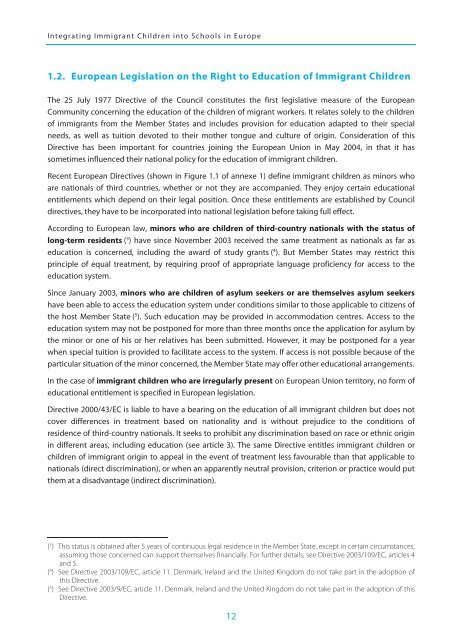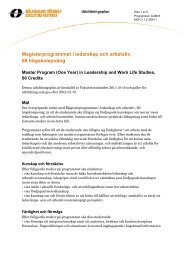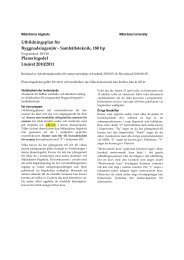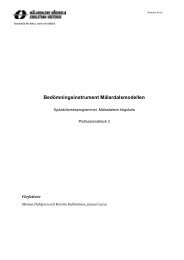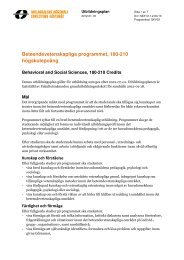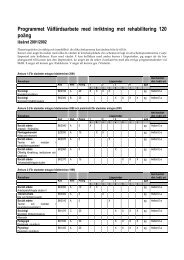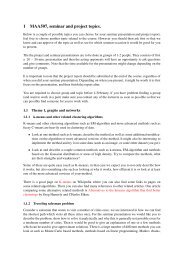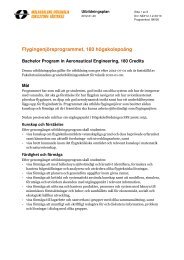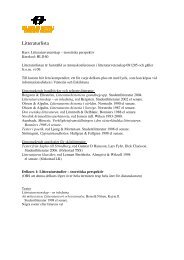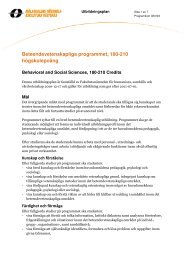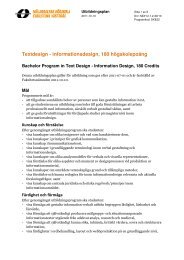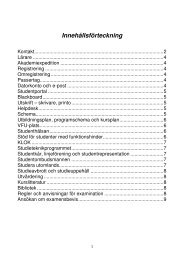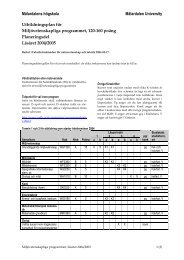Integrating Immigrant Children into Schools in Europe
Integrating Immigrant Children into Schools in Europe
Integrating Immigrant Children into Schools in Europe
You also want an ePaper? Increase the reach of your titles
YUMPU automatically turns print PDFs into web optimized ePapers that Google loves.
<strong>Integrat<strong>in</strong>g</strong> <strong>Immigrant</strong> <strong>Children</strong> <strong><strong>in</strong>to</strong> <strong>Schools</strong> <strong>in</strong> <strong>Europe</strong>1.2. <strong>Europe</strong>an Legislation on the Right to Education of <strong>Immigrant</strong> <strong>Children</strong>The 25 July 1977 Directive of the Council constitutes the first legislative measure of the <strong>Europe</strong>anCommunity concern<strong>in</strong>g the education of the children of migrant workers. It relates solely to the childrenof immigrants from the Member States and <strong>in</strong>cludes provision for education adapted to their specialneeds, as well as tuition devoted to their mother tongue and culture of orig<strong>in</strong>. Consideration of thisDirective has been important for countries jo<strong>in</strong><strong>in</strong>g the <strong>Europe</strong>an Union <strong>in</strong> May 2004, <strong>in</strong> that it hassometimes <strong>in</strong>fluenced their national policy for the education of immigrant children.Recent <strong>Europe</strong>an Directives (shown <strong>in</strong> Figure 1.1 of annexe 1) def<strong>in</strong>e immigrant children as m<strong>in</strong>ors whoare nationals of third countries, whether or not they are accompanied. They enjoy certa<strong>in</strong> educationalentitlements which depend on their legal position. Once these entitlements are established by Councildirectives, they have to be <strong>in</strong>corporated <strong><strong>in</strong>to</strong> national legislation before tak<strong>in</strong>g full effect.Accord<strong>in</strong>g to <strong>Europe</strong>an law, m<strong>in</strong>ors who are children of third-country nationals with the status oflong-term residents ( 3 ) have s<strong>in</strong>ce November 2003 received the same treatment as nationals as far aseducation is concerned, <strong>in</strong>clud<strong>in</strong>g the award of study grants ( 4 ). But Member States may restrict thispr<strong>in</strong>ciple of equal treatment, by requir<strong>in</strong>g proof of appropriate language proficiency for access to theeducation system.S<strong>in</strong>ce January 2003, m<strong>in</strong>ors who are children of asylum seekers or are themselves asylum seekershave been able to access the education system under conditions similar to those applicable to citizens ofthe host Member State ( 5 ). Such education may be provided <strong>in</strong> accommodation centres. Access to theeducation system may not be postponed for more than three months once the application for asylum bythe m<strong>in</strong>or or one of his or her relatives has been submitted. However, it may be postponed for a yearwhen special tuition is provided to facilitate access to the system. If access is not possible because of theparticular situation of the m<strong>in</strong>or concerned, the Member State may offer other educational arrangements.In the case of immigrant children who are irregularly present on <strong>Europe</strong>an Union territory, no form ofeducational entitlement is specified <strong>in</strong> <strong>Europe</strong>an legislation.Directive 2000/43/EC is liable to have a bear<strong>in</strong>g on the education of all immigrant children but does notcover differences <strong>in</strong> treatment based on nationality and is without prejudice to the conditions ofresidence of third-country nationals. It seeks to prohibit any discrim<strong>in</strong>ation based on race or ethnic orig<strong>in</strong><strong>in</strong> different areas, <strong>in</strong>clud<strong>in</strong>g education (see article 3). The same Directive entitles immigrant children orchildren of immigrant orig<strong>in</strong> to appeal <strong>in</strong> the event of treatment less favourable than that applicable tonationals (direct discrim<strong>in</strong>ation), or when an apparently neutral provision, criterion or practice would putthem at a disadvantage (<strong>in</strong>direct discrim<strong>in</strong>ation).( 3 ) This status is obta<strong>in</strong>ed after 5 years of cont<strong>in</strong>uous legal residence <strong>in</strong> the Member State, except <strong>in</strong> certa<strong>in</strong> circumstances,assum<strong>in</strong>g those concerned can support themselves f<strong>in</strong>ancially. For further details, see Directive 2003/109/EC, articles 4and 5.( 4 ) See Directive 2003/109/EC, article 11. Denmark, Ireland and the United K<strong>in</strong>gdom do not take part <strong>in</strong> the adoption ofthis Directive.( 5 ) See Directive 2003/9/EC, article 11. Denmark, Ireland and the United K<strong>in</strong>gdom do not take part <strong>in</strong> the adoption of thisDirective.12


